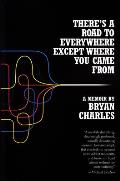
On my last night in Michigan, I checked my e-mail. There was a message from my boss at the marketing agency saying she hoped I had a good trip to the Midwest, and they were all set for my return on Monday. I was relieved for a moment, then overcome with dread — the same reaction I've had to gainful employment since the moment at age 13 when I was hired to mow a neighbor's lawn. It was a big lawn, a two-day job with a push-mower. At the end of the day the woman gave me some water and asked what time I'd be returning tomorrow. I said I couldn't come back right away, I had my own lawn to mow and, you know, other things to do, and that was that, she never called back.
Two years later I got my first dishwashing job, at the Gull Lake Country Club. A few weeks into it, I went to my boss and told him I quit. When? he said. Right now, I said. All right, he said, nodding toward the door. Ninety seconds later I had a change of heart. I said I wanted to stay. My boss kept me on, then fired me a short time later for instigating a water fight. Since then I've quit a number of jobs — leaf-raking jobs, dishwashing jobs, toilet-scrubbing jobs, factory jobs, office jobs. Early on, I would quit at whim, either walking out or never going back, giving no thought to where my next paycheck would come from. In later years — the post-9/11 years — I would take a longer view, saving money for a while before quitting and living off it until it was gone, more than gone (at which point, as I mentioned, I would hit up my parents). Work was something I did only to buy time to write — my real life's work. But those ups and downs have taken a toll, and I'm 36 years old now and in a long-term relationship, and I can't see myself living like that anymore.
If you add up what I've been paid for all my books, it comes to less than what I made in a year at my first financial writing job back in 1999 (which I quickly realized, in the context of the industry, paid peanuts). I'm not complaining — I didn't get into this for the money — but as a practical, wage-earning matter where does that leave me? What are the options? Teaching? Book reviews? Pitching trend pieces to men's magazines? Handing out flyers for Ranch 1 outside the subway on Fifty-third Street? I honestly have no idea how I'm going to make a living in the future, which means next month.
In his essay "The Crack-Up," Fitzgerald writes of shedding the various distractions and self-delusions that had him stretched so mind-shatteringly thin, becoming, at last, a "writer only." My problem — the thing that has me perpetually half-cracked — is that that's what I've wanted all along. Not only that, I wanted to be great, as great as my heroes, one of the best. I still want that. I don't know any writer who would tell you otherwise ("Yeah, my new book seems pretty okay, and that'll do for now"). But it's like Bukowski said (I'm paraphrasing here): You're never really a writer, you have to keep proving it every time you sit at the desk.
In the meantime I'll do whatever dumb thing it takes to keep going (last week one of my tasks was to cut and paste text from a series of PDFs into a sprawling Word document), with the hope that one day it'll get better — maybe I'll win a big-money prize, or my books will start to sell in Stieg Larsson-like numbers, or they'll make a movie of one of them and it'll become a classic, guaranteeing steady sales into the future — or, more realistically, I'll figure out a way to make a living that doesn't make me feel subhuman ("Keep the customer on the line." "Have a good answer to every objection." "Close the sale."), or necessitate giving up days at a time to the most wretched boredom, falling down Internet rabbit holes that fill my head with useless "content."
My attitude about this was shaped by 9/11. Without that experience, the stakes (most likely) wouldn't seem quite as high. But after that offices looked different to me. They became sinister in their banality — seemingly innocuous places that could at any dull moment be visited by utter horror possibly resulting in death. After that the act of writing itself — doing it or not doing it — became life or death. Would I have continued in this vein if my novel — the writing of which inaugurated this phase of my life — had never been published? I believe I would have. And it's likely I would have found myself exactly where I am now (12/9/10, 2:37 p.m.): sitting in a cubicle, scheming, planning, taking notes, thinking, always, of what I want to write next and how to get it done.